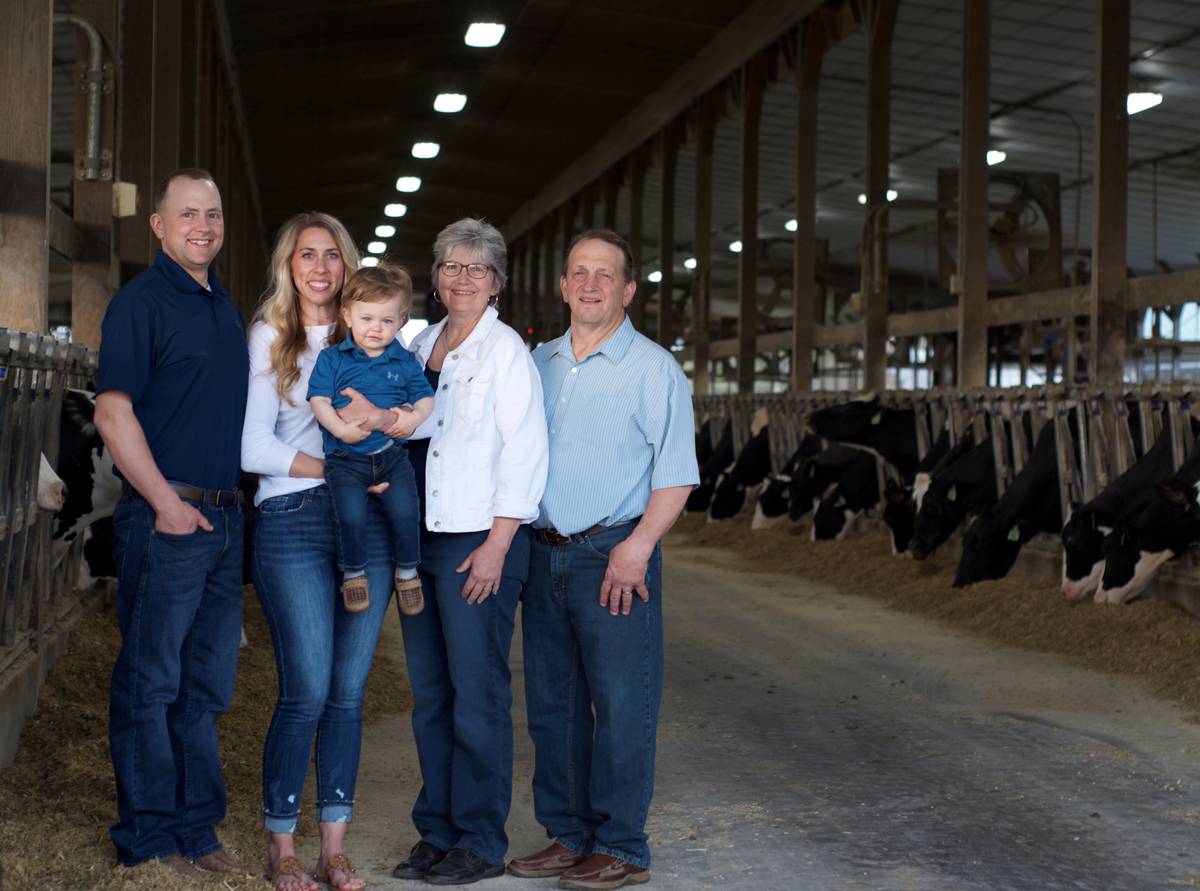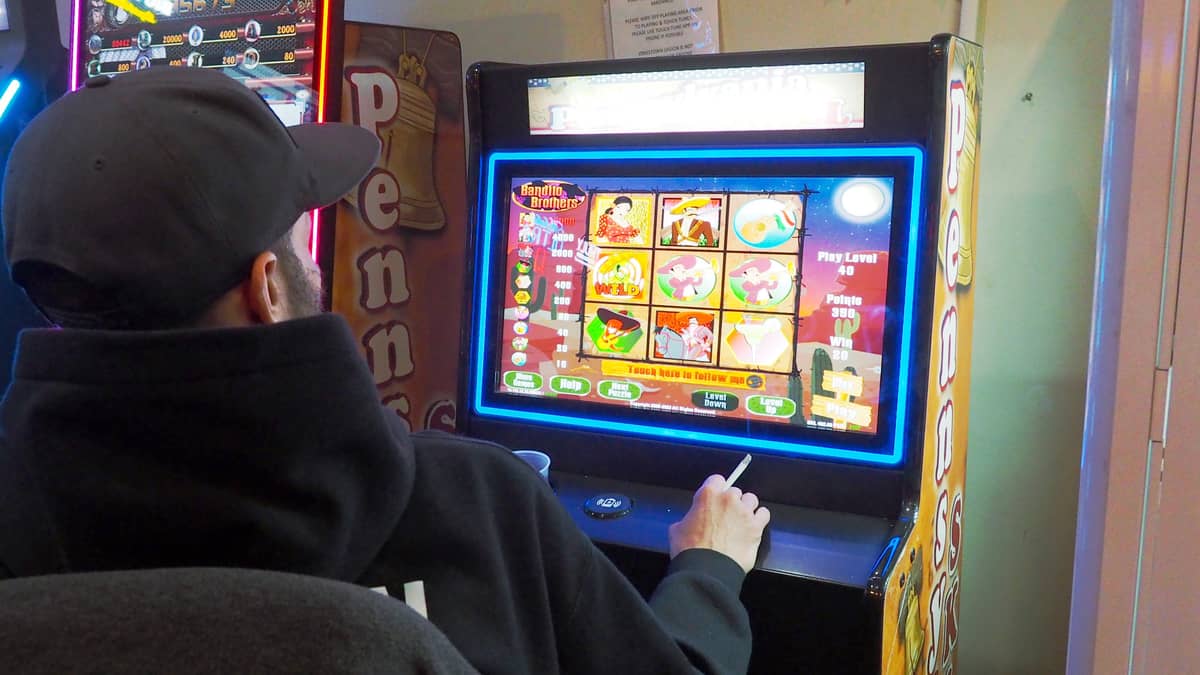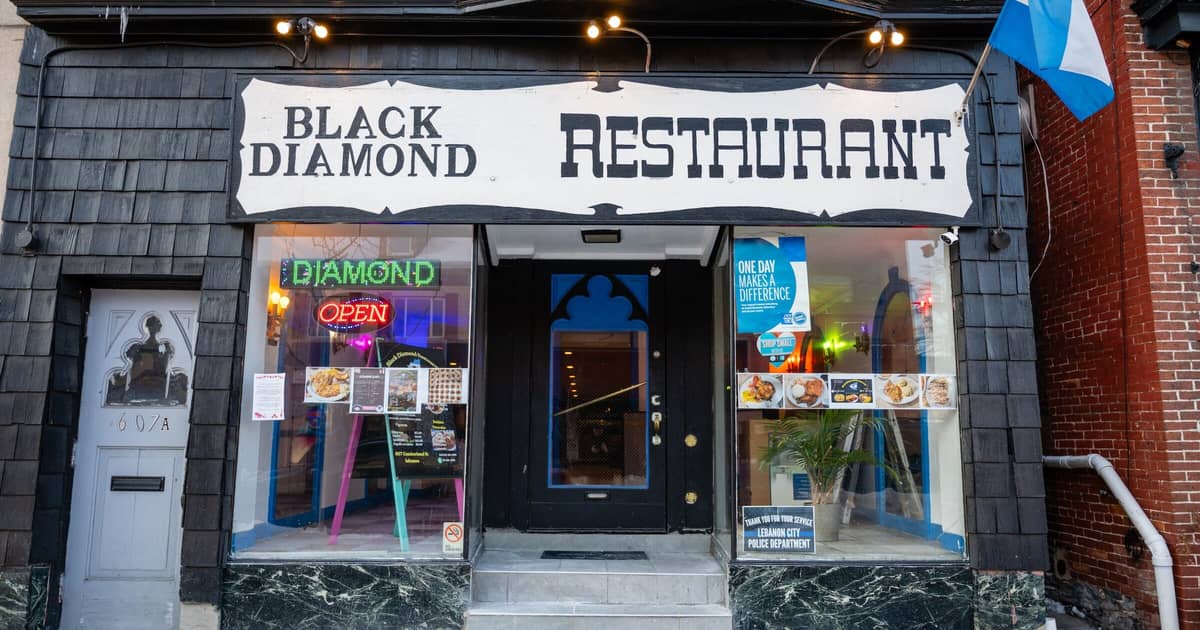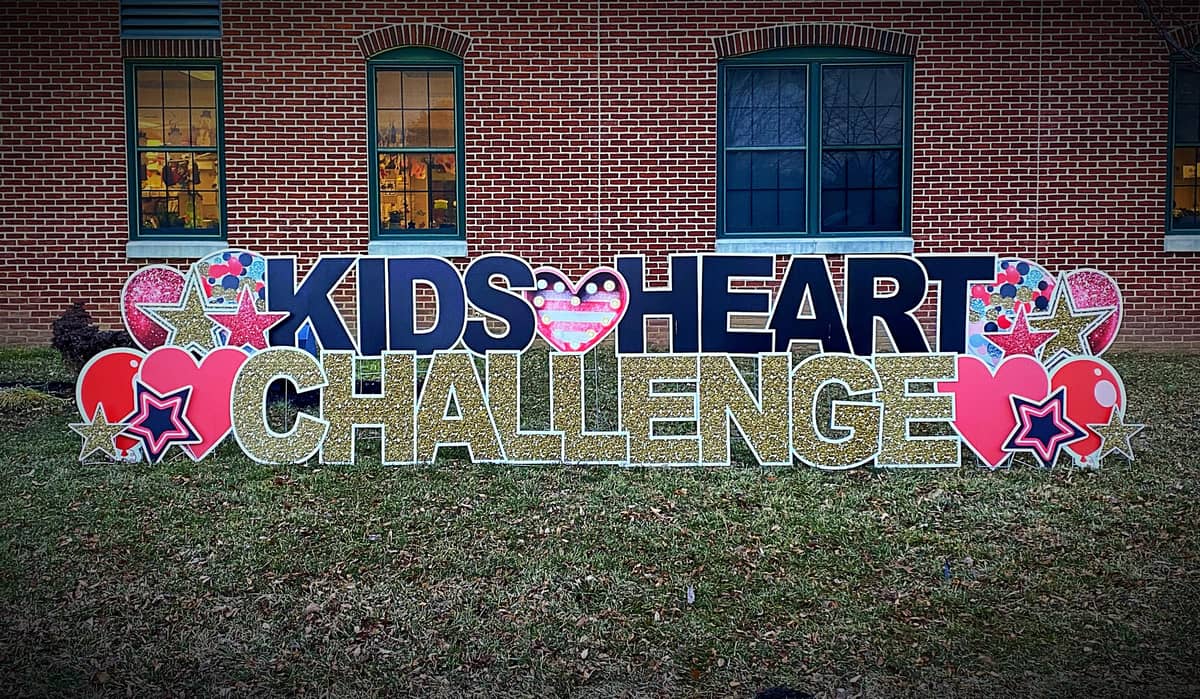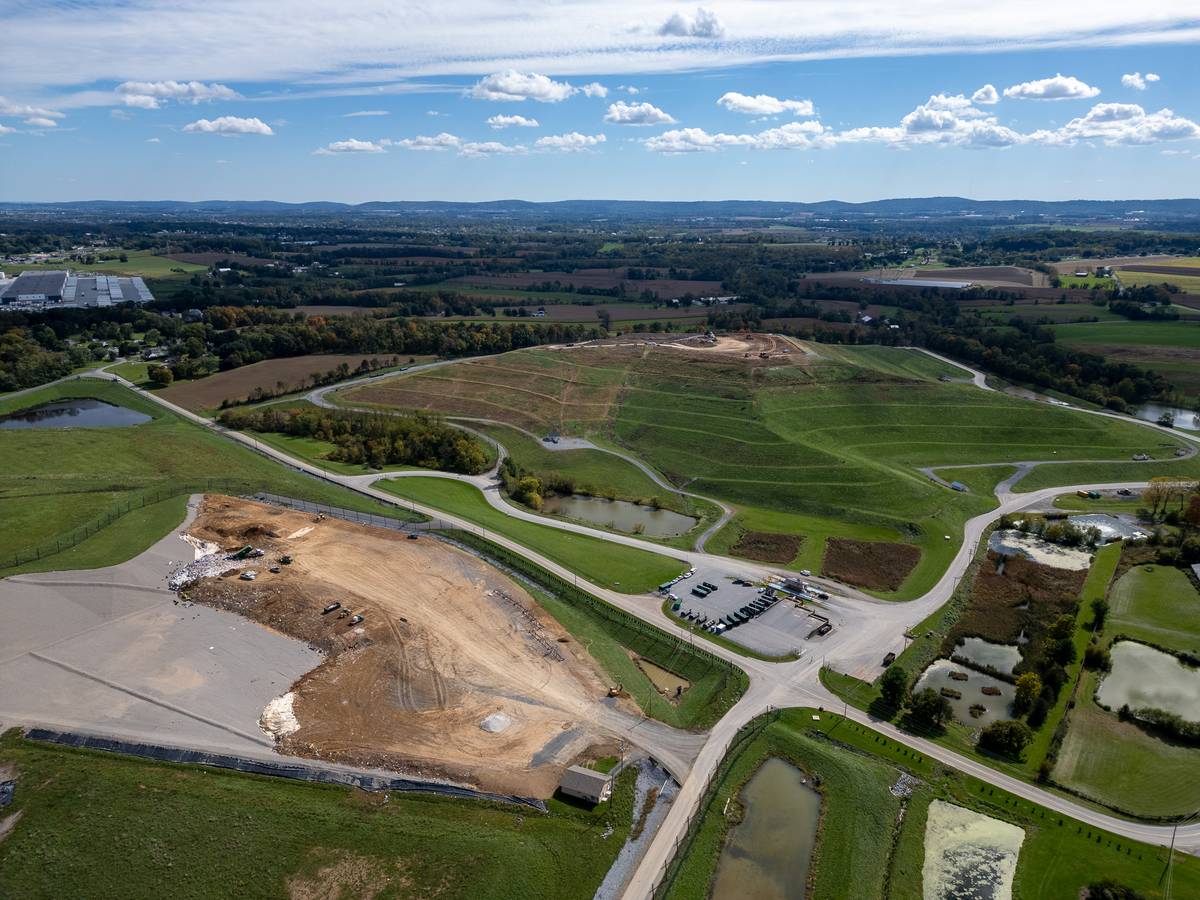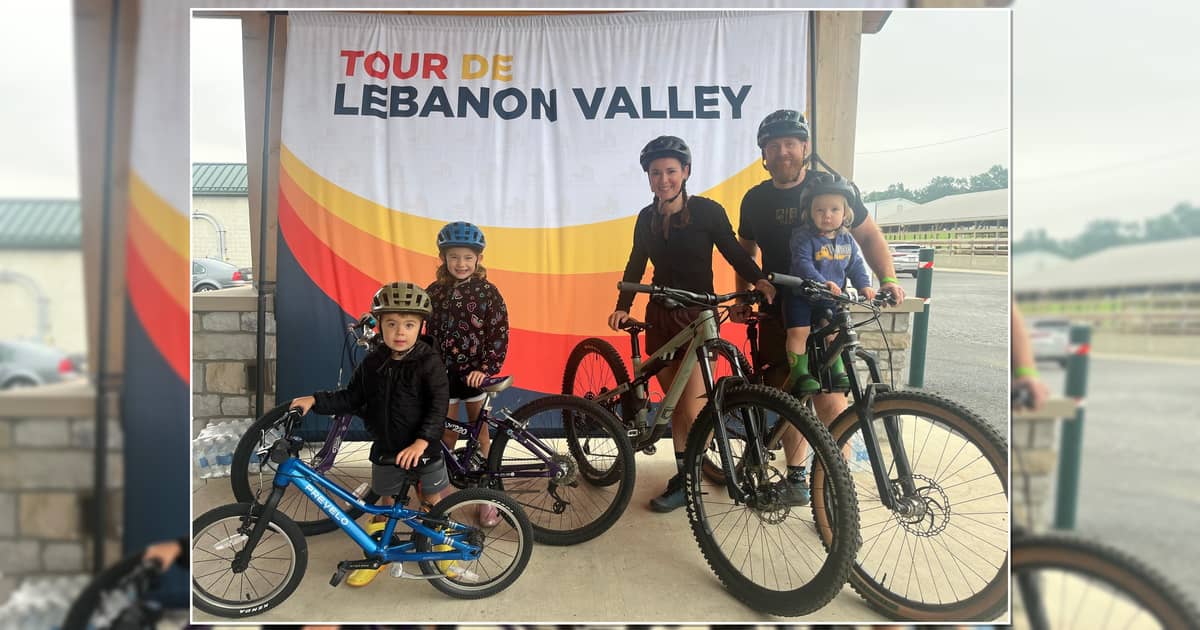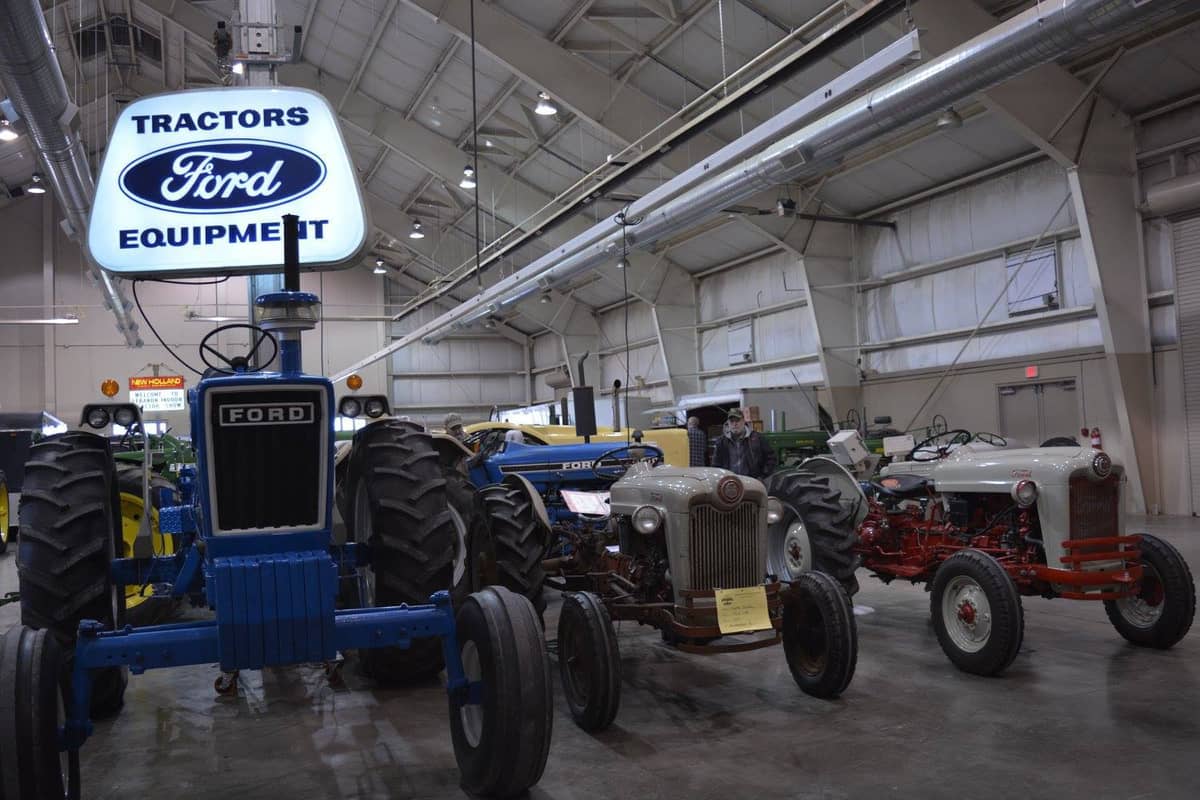A few head of Lebanon County cattle will be commuting to the Farm Show Complex & Expo Center in Harrisburg this month to give birth in front of a live audience.
Four cows, specifically, from the Brook-Corner Holsteins farm will be putting their maternal instincts on display as people gather at the Calving Corner, a relatively new exhibition at the Pennsylvania Farm Show that shares the miracle of birth, barnyard style.
“It’s a great opportunity for the public to witness something that they’re probably not going to see anywhere else,” says Amy Hoover, who – with her husband Brad Hoover, their son Brock and her in-laws, Diane and Reid Hoover – owns Brook-Corner farm.
“Even as a farmer, you see animals giving birth sometimes multiple times a day, but you never lose that awe,” she says. “It’s important to be aware where your food comes from. Ultimately, your dairy products come from dairy cows, but it’s important to see the animal –and the people – behind that product.
“It gives us a great opportunity to explain that cows only produce milk after they’ve had a baby. That’s something that I think a lot of the general public doesn’t know.”
Past experience proves the Calving Corner is an unfiltered barnyard experience; the miracle of birth can, at times, be a bit bloody, even traumatic. Calves will enter the world under the watchful eyes of hundreds of spectators at any given time.
In fact, dairy cows aren’t especially maternal, and calves could be injured if the mother is too clumsy, so volunteers will whisk the calves away to a safe space after birth where they can get a regulated amount of colostrum, which is freshly milked from the mother and fed by bottle to build the newborn’s immune system. There, still within view of the audience, calves will often take their first steps.
Watch the birth, meet the calves
The 106th Farm Show will be held this year from Saturday, Jan. 8 through Saturday, Jan. 15. This is the fifth year for the Calving Corner, according to Emily Barge, communications and marketing manager for the Center for Dairy Excellence.
Barge said the Calving Corner is the cornerstone exhibit of the “Destination Dairy” section in Northeast Hall. The hall will also include “interactive, family-friendly learning stations,” she said, “including activities centered around dairy nutrition, animal care, shopping locally, and more.”
Cows from four Pennsylvania dairy farms will calve on site during the length of the Farm Show, Barge said, “so visitors can witness the dairy birthing process and meet newborn calves.” She noted that volunteers from the dairy industry be on hand all week to answer questions about Pennsylvania dairy.
“Pennsylvania is home to more than 5,400 dairy farm families, nearly 40 dairy processing companies, and a wide array of small-scale dairy creameries and artisan cheese makers,” Barge said in a release. “Ninety-nine percent of all dairy farms in Pennsylvania are family owned. The Destination Dairy exhibit hall will highlight several of the state’s dairy farm families and share the impact Pennsylvania dairy is making on local communities and the state’s economy.”
Other farms being featured in Calving Corner this year are Mercer Vu Farms, owned by Rod and Rick Hissong of Mercersburg, Franklin County; Burk-Lea Farms, owned by Clint and Kara Burkholder of Chambersburg, Franklin County; and Walton Farms, owned by Stephen and Matthew Walton of Cochranville, Chester County.
Brook-Corner cows will be on display on Friday and Saturday, Jan. 14-15. They’ll move them in the night before, she says, so they have time to get settled, so they can get used to their surroundings.
Cows from only one farm will be on the premises at a time, Hoover explains.
“That’s for bio-security reasons,” she says. “We’re bringing cows in from different locations. We don’t want to share anything or spread anything.”
Nature doesn’t always cooperate
The Hoovers have volunteered in the Calving Corner in previous years, Amy Hoover says, but this is their first year bringing cows to the exhibition.
They participated in 2021, she noted, but because the Farm Show was closed to the public because of pandemic restrictions, the cows gave birth on the farm in front of a camera crew, who provided a live feed for the event.
It’s not quite the same as being there, Hoover says.
“I think we’re all excited to be back live and in person,” she says.
They’re bringing four cows to the Farm Show Complex and hope to come home with four calves.
“They should have four calves, ideally. Over the course of two days,” she says. “The goal is two calves per day, if we can make that happen.”
“If” is the operative word, since Mother Nature doesn’t always cooperate when it comes to birthing plans.
“Sometimes it doesn’t happen. Sometimes it happens early,” Hoover says.
“Cows typically aren’t used to a crowd,” she adds. “The goal of the volunteers at the calving corner is to try to encourage the crowd to be as quiet as possible. It’s an exciting event, but they want to keep it as quiet as possible so the cows aren’t nervous. Giving birth is a big ordeal, and in front of an audience is a little more exciting.
“Typically, the audience is very respectful of that. I think they’re a little in awe of what they’re seeing.”
Experienced mommies only
Volunteers also are on hand to answer questions and explain what’s going on, Hoover says.
“This takes months to plan,” she notes. “A cow’s gestation period is a little over nine months, so we had to have the logistics arranged months ago to be sure we’d have enough cows to bring to the Farm Show.”
Experienced mommies only, she adds.
“We’re not going to bring a heifer who’s having her first baby,” Hoover says. “These have all had calves before, so they won’t be as nervous. They’ve done it before. … They’re the best fit for a public calving.”
They even get ultrasounds before traveling to the Farm Show to be sure none of the pregnant heifers are having twins. Twins, Hoover explains, typically require extra assistance and wouldn’t be well suited to a public arena.
“It takes a lot of planning to make it happen, but the effort is worth it,” she notes. “It’s exciting to see all of the adults and children alike take in the experience. … The public really seems to enjoy this event. Although it’s a lot of work for the farms to get there, we really see this as beneficial for the public.
“And, as a family, we do like to show our cattle.”
Names for the future newborns have not yet been chosen, Hoover says.
Agricultural exposure
Brook-Corner Holsteins is “owned and operated by all of us,” Hoover says. According to a release from the Center for Dairy Excellence, the farm is home to 375 registered Holsteins and an additional 400 heifers.
“Our cows are milked three times a day,” Hoover says. “The milk is bottled as Swiss Premium and sold locally.”
Hoover, who moved to Pennsylvania about five years, says her native Illinois had a state fair in the summertime but no winter Farm Show like Pennsylvania’s.
But, she says, “any exposure of agriculture to the public is extremely important.”
Questions about this story? Suggestions for a future LebTown article? Reach our newsroom using this contact form and we’ll do our best to get back to you.

Keep local news strong.
Cancel anytime.
Monthly Subscription
🌟 Annual Subscription
- Still no paywall!
- Fewer ads
- Exclusive events and emails
- All monthly benefits
- Most popular option
- Make a bigger impact
Already a member? Log in here to hide these messages
Free local news isn’t cheap. If you value the coverage LebTown provides, help us make it sustainable. You can unlock more reporting for the community by joining as a monthly or annual member, or supporting our work with a one-time contribution. Cancel anytime.

